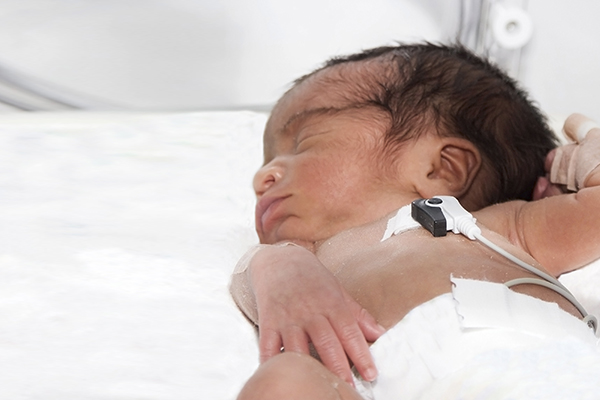HOW CAN WE HELP YOU? Call 1-800-TRY-CHOP
In This Section
Getting Into a California State of Mind: PAS Meeting Preview
 If you’re eager to learn and a creator of change — which pretty much covers everyone here at the Research Institute — then you’ll want to know about what’s happening at the Pediatric Academic Societies Annual Meeting (PAS), the largest international meeting focusing on research in child health. From May 6 to 9, experts from Children’s Hospital of Philadelphia will be in San Francisco at PAS as speakers, presenters, participants, and award winners.
If you’re eager to learn and a creator of change — which pretty much covers everyone here at the Research Institute — then you’ll want to know about what’s happening at the Pediatric Academic Societies Annual Meeting (PAS), the largest international meeting focusing on research in child health. From May 6 to 9, experts from Children’s Hospital of Philadelphia will be in San Francisco at PAS as speakers, presenters, participants, and award winners.
A highlight of the meeting will be a presentation during the Society for Pediatric Research’s (SPR) Presidential Scientific Plenary session by Sagori Mukhopadhyay, MD, MMSc, an attending neonatologist at CHOP Newborn Care at Pennsylvania Hospital, who is the inaugural awardee of the SPR’s Physician Scientist Award. The SPR designed this new program as a bridging mechanism to help investigators obtain critical preliminary data for extramural funding applications.

Dr. Mukhopadhyay’s overall research goal is to determine the health outcomes of neonatal infections as well as the health outcomes that result from management of those infections. Specifically, she wants to better understand how antibiotic use early in life could be associated with altered development of the immune responses, likely secondary to microbiome disruption. Microbiota communities that begin to colonize our bodies at birth and develop throughout early childhood are influenced by factors such as our genetic composition, where we live, our household environment, what we eat, and the medications we take.
Dr. Mukhopadhyay will use a retrospective cohort to determine if incidence of childhood allergic diseases and childhood infections are related to perinatal antibiotic exposures. She will collaborate with experts in the field of infectious diseases, genomics, and bioinformatics.
“Understanding early life interventions that alter later health outcomes is at the heart of neonatology research but also critical to medicine in general,” Dr. Mukhopadhyay said.
Join Dr. Mukhopadhyay at the SPR Presidential Scientific Plenary session Monday, May 8, at 9 a.m., for her presentation titled, “Perinatal Antibiotic Effect on Neonatal Microbiome, Childhood Atopy & Infection.”
Here are a few other sessions, workshops, and posters not to miss at PAS:
- James P. Guevara, MD, MPH, a founding member of PolicyLab at CHOP, will present Saturday, May 6, at an 8 a.m. session findings from a study of a novel social media-based parent coaching program for mothers with postpartum depressive symptoms. The study results suggest that participants in an eight-week Facebook Secret User parenting group had greater improvements in depressive symptoms and parenting competence compared to an in-person group.
- Chén C. Kenyon, MD, MSHP, a faculty member of PolicyLab, will discuss a study on the feasibility of an automated text message intervention for high risk children immediately following asthma hospitalization or emergency department visit and whether the intervention’s effectiveness improved daily adherence to inhaled corticosteroids. The session begins at 4:15 p.m., Sunday, May 7.
- For many families with health-related social problems, such as food insecurity, the pediatric emergency department serves as a point of care entry to an academic medical center that can provide resources and service referrals. Danielle Cullen, MD, MPH, a CHOP pediatric emergency medicine fellow and Leonard Davis Institute Fellow, will discuss study findings that estimate the prevalence of food insecurity in an urban, academic pediatric emergency department in a city with a known food insecurity rate of 22.4 percent. The study also assessed participant acceptability of screening and preferred modality of screening in order to maximize disclosure. Stop by her presentation, “How Secure Are We About Food Insecurity? Screening Families in the Pediatric ED,” Monday, May 8, at 9 a.m.
- Jonathan M. Spergel, MD, PhD, allergy section chief at CHOP will speak Monday afternoon about the risk of a child with atopic dermatitis developing asthma, also known as the atopic march. Dr. Spergel’s study of patients at CHOP suggests that children with atopic dermatitis or food allergy have a two-fold increase risk of developing asthma compared to the general population.
- Patricia Hicks, MD, MHPE, a CHOP general pediatric hospitalist attending physician, will co-lead a workshop Tuesday, May 9, at 9:30 a.m. titled, “Accelerating Medical Education Scholarship: From Idea to Publication.” The workshop will include instruction and discussion of development of educational research and guidance on how to design, collaborate on, and disseminate this research. Also be on the lookout for Dr. Hicks’ poster about the development and implementation of an authentic workplace-based assessment system to determine first-year residents’ readiness to provide patient care without a supervisor nearby. This work included many investigators from CHOP as well as investigators from more than 30 academic pediatrics programs throughout the country.
Find more information here about other CHOP presenters. If you’ll be attending PAS, visit CHOP’s booth #722 to pick up materials with new details about our research, clinical programs, and resources. Check the PAS final program guide for any updates on dates, times, and locations.